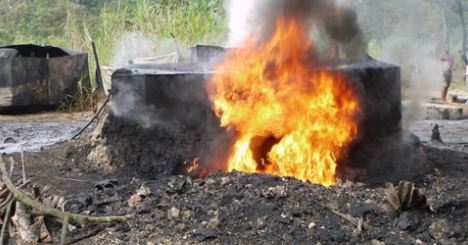The Group Managing Director of the Nigerian National Petroleum Corporation (NNPC), Dr Maikanti Baru, says Federal Government’s peace initiative in the Niger Delta has raised production of Nigeria’s three refineries.
In a statement released in Abuja on Tuesday by Mr Ndu Ughamadu, NNPC Group General Manager, Public Affairs Division, Baru said this during an interactive session with a delegation from the UK Royal College of Defence Studies.
According to him, refining activities peaked at 10 million barrels of crude oil in the first quarter of 2017 alone as against eight million and 24 million barrels for the entire years of 2015 and 2016 respectively.
Baru, who was represented at the event by the Chief Operating Officer, Gas and Power, Mr Saidu Mohammed, said apart from the upbeat in the refineries activities attributable to the peace initiative, which has lowered the rate of attacks on oil installations, the corporation has recorded an increase in crude oil production to two million barrels per day in recent time.
”As a nation, we have tried all available options, including military, to tackle the security challenge. We have discovered that guns are not as effective as the engagement option.
”The peace we are enjoying now is as a result of the engagement with stakeholders in the region led by the Acting President. We intend to build on that to achieve lasting peace”, Baru said.
He said with the respite in the region, the NNPC would do all it could to build on the gains of the Federal Government to deepen and sustain the peace.
Speaking earlier, the team leader of the UK Royal College of Defence Studies delegation, Maj. Gen. Craig Lawrence, said the group was in NNPC to learn how the corporation was generating wealth and prosperity for the country in the face of daunting challenges.
He thanked the management of NNPC for sparing the time to explain to the delegation the workings of the corporation.
Members of the delegation included United Kingdom, France, Pakistan, and Thailand nationals, among others.
NAN

